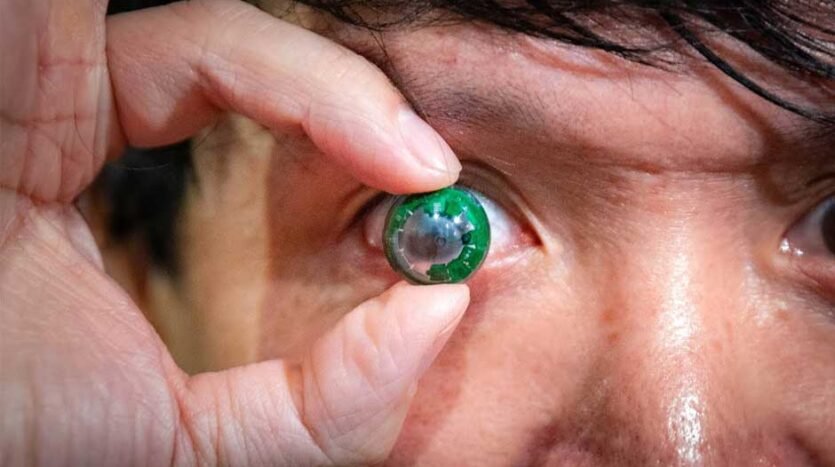How Contact Lenses Affect Human and AI Facial Recognition
Facial recognition technology has found its way into our daily lives as it saves time, gives security, and enhances efficiency. From opening mobile phones to scanning for identification at the airport, the facial recognition system identifies an individual by analyzing specific unique facial features. With these advances, questions on its accuracy and reliability arise as individuals consider various factors such as wearing contact lenses. This article explores the intriguing question: Do contact lenses affect facial recognition? It also delves into whether these systems can detect contact lenses, the effect of wearing contacts on facial recognition technology, and whether facial recognition accuracy is compromised.
Introduction to Facial Recognition Technology
Facial recognition technology uses AI algorithms to map facial features and compare them with stored data. These systems are used in various sectors, including law enforcement, healthcare, and personal devices. The accuracy of these systems is paramount, especially in sensitive areas like security and surveillance. However, external factors such as lighting, facial expressions, and eyewear, including contact lenses, can influence their performance.
Role of Eyes in Facial Recognition
Eyes play an essential role in facial recognition. Algorithms focus on separate landmarks like distance between eyes, iris patterns, and eyelid shapes while mapping out the faces precisely. Having established the role that ocular features play, the answer to Can face ID work with contact lenses becomes understandable, depending upon the contact lens interaction process with such algorithms.
What Are Contact Lenses and Do contact lenses affect facial recognition?
Contact lenses are thin, curved lenses worn on the surface of the eyes to correct vision or serve cosmetic purposes.
Types of Contact Lenses:
- Clear Lenses: They correct refractive errors such as myopia or astigmatism.
- Colored Lenses: Change or improve the natural color of the eyes.
- Cosmetic Lenses: For cosmetic purposes, often in the fashion or entertainment industry. 4. Corrective Lenses: Used to correct specific vision issues.
Although they enhance the vision, they do tend to change the physical appearance of the eyes slightly and may, therefore, affect facial recognition technology.
Do Contact Lenses Affect Human Facial Recognition?
When wearing contact lenses, human perception of faces is generally unaffected, as lenses enhance visual clarity. However, behavioral changes, such as avoiding direct eye contact or squinting due to discomfort, can alter facial expressions, indirectly influencing how others perceive faces.
Influence of Contact Lenses on AI Facial Recognition Systems
How Clear Lenses Affect Recognition
Clear lenses usually do not significantly affect AI-based facial recognition systems. They are designed to be virtually invisible, thus not blocking ocular features. But sometimes, reflections or glare from lighting can affect high-resolution scanning.
Colored and Decorative Lenses
Can facial recognition detect contact lenses? AI algorithms are likely to be confused by the colored or decorative lenses as these can distort or obscure key ocular patterns, like the iris. This interference may reduce facial recognition accuracy, especially when the systems rely on biometrics from the eyes for detailed recognition. Case Studies and Observations
A number of studies have considered the impact of contact lenses on facial recognition technology. Findings are that clear lenses have minimal impact, but tinted and patterned lenses may reduce recognition by as much as 15%.
Glasses vs Contact Lenses for Facial Recognition
Both glasses and contact lenses affect facial recognition, but in a different manner. Glasses are less obtrusive with reflective or tinted lenses that may blur the most significant features of the face, which may be difficult to recognize. Contact lenses, however, are less obtrusive but can still have an effect on recognition, especially if they change the appearance of the eyes.
Facial recognition systems can at times fail to differentiate the true state of eye features and alterations to them. Such capability, however is pronounced if an individual uses a highly dramatic cosmetic lens that gives another entire appearance to one’s eye.
Security Compromise
With face recognition unable to capture decorative contact lenses, its reliability creates some vulnerabilities. There have been cases, especially through the use of decorative lenses that will attempt to bypass some systems by misadventing the algorithms.
Potential Solutions and Improvements
Enhancing Algorithm Sensitivity
Developers can optimize algorithms to detect subtle changes in ocular features caused by contact lenses. Incorporating data from diverse user populations, including those wearing different types of lenses, can improve accuracy.
Advanced Imaging Technologies
The integration of advanced imaging technologies, such as infrared scanning, can help systems penetrate reflections or detect variations introduced by contact lenses.
Conclusion: Balancing Accessibility and Accuracy
The question is, Do contact lenses affect facial recognition? , reveals a complex interplay between human innovation and technology. While clear lenses have a negligible effect, colored or decorative lenses can impair facial recognition accuracy, and thus more complex systems are required. Improving algorithms, using advanced imaging techniques, and ethical considerations will be part of the process. As technology advances, finding a balance between accessibility and accuracy will be important in ensuring that facial recognition remains reliable, inclusive, and secure.


